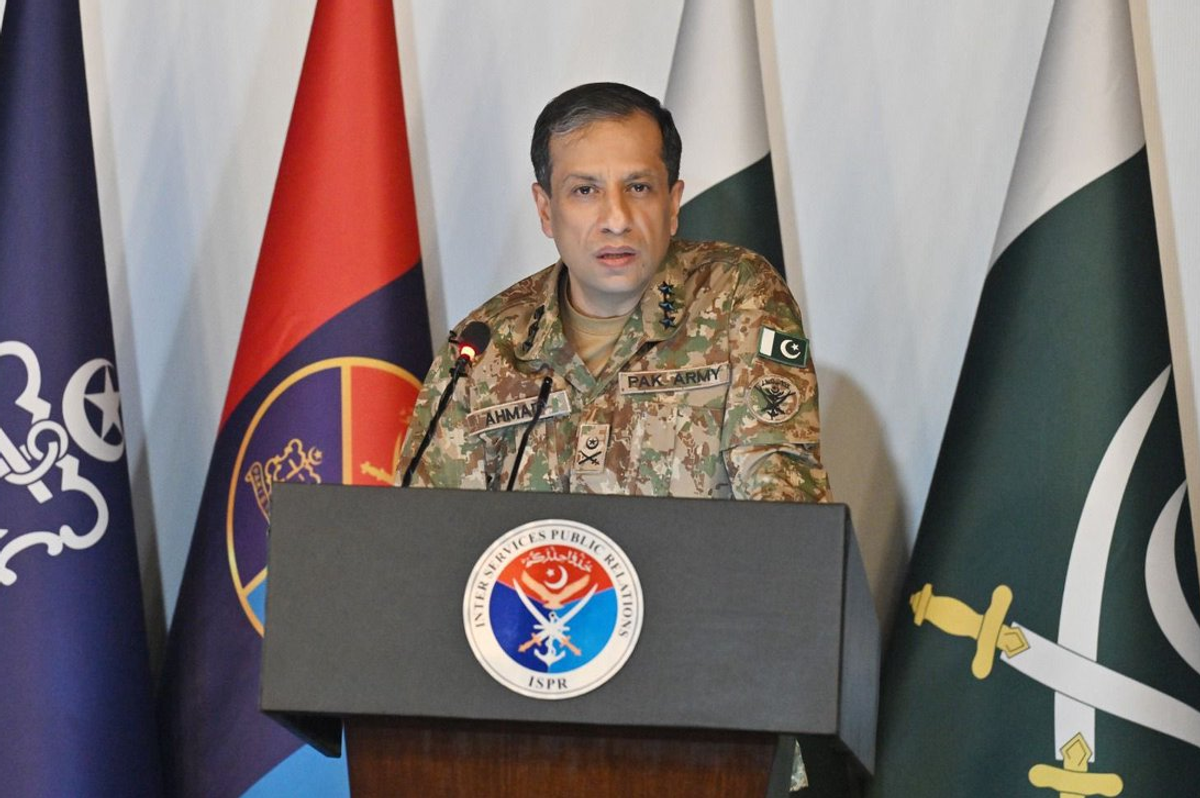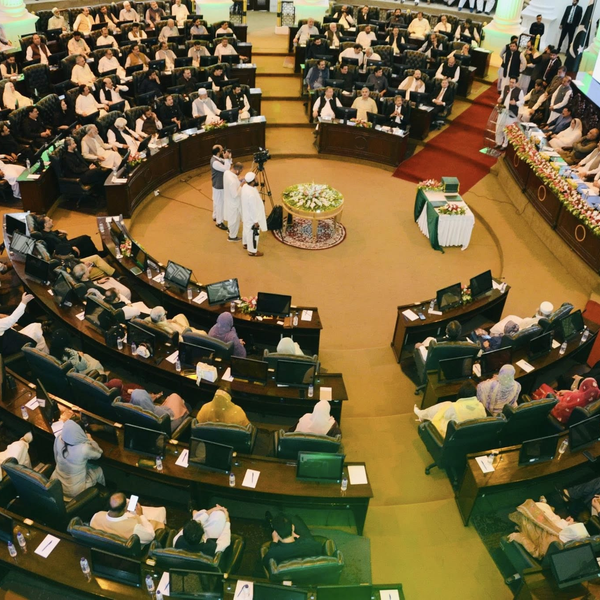Pakistan denies carrying out overnight cross-border strikes in Afghanistan
DG ISPR dismisses Kabul’s claims, says cross-border militancy Pakistan’s main security threat; any Pakistani operation would be publicly announced

Aamir Abbasi
Editor, Islamabad
Aamir; a journalist with 15 years of experience, working in Newspaper, TV and Digital Media. Worked in Field, covered Big Legal Constitutional and Political Events in Pakistan since 2009 with Pakistan’s Top Media Organizations. Graduate of Quaid I Azam University Islamabad.

A file photo of DG ISPR Lt. Gen. Ahmed Sharif Chaudhry.
Courtesy: X
Pakistan denied on Tuesday Afghan allegations that its forces conducted cross-border strikes overnight, saying no military action took place inside Afghanistan and urging Kabul to act against militants operating from its territory.
Taliban spokesman Zabihullah Mujahid said on X that Pakistani forces bombed a civilian home in eastern Khost province, killing nine children and a woman. The Taliban government vowed to respond, accusing Islamabad of carrying out the strikes hours after a suicide bombing in Pakistan’s northwestern city of Peshawar.
Monday’s blast targeted the headquarters of Pakistan’s paramilitary Federal Constabulary, killing three officers and wounding 11. Islamabad has blamed militants operating from Afghan territory for a surge in attacks this year.
Military spokesperson Lieutenant General Ahmed Sharif Chaudhry told senior journalists in Rawalpindi that Pakistan had carried out “no operation whatsoever” across the border. He called on Afghanistan’s Taliban administration to take “credible and verifiable action” against groups Pakistan accuses of launching attacks from Afghan soil.
Chaudhry described cross-border militancy as Pakistan’s most serious security challenge, citing what he said was continued movement, shelter and facilitation for militants inside Afghanistan. “Whenever Pakistan conducts an operation, it announces it formally,” he said, rejecting Kabul’s accusations as baseless.
He also pointed to a “strong nexus” between smuggling networks and political criminal groups along the frontier, saying illicit trade was strengthening militant outfits and destabilizing the region. Pakistan, he said, is intensifying operations to dismantle those networks and disrupt cross-border facilitators.
Chaudhry said Pakistan would continue pursuing armed groups behind attacks inside the country. “Terrorists will be hunted down till their last breath,” he said, adding that authorities were scaling up measures targeting smuggling rings and organized crime.
He also addressed domestic speculation surrounding the court martial of former intelligence chief Lieutenant General (retd) Faiz Hameed, calling the proceedings a “purely legal and judicial process” that should not be politicized. He noted that counterterrorism committees at federal and provincial levels include military representatives, and said the Balochistan government was taking steps to counter what he described as economic sabotage in the province. Balochistan, he added, was implementing Pakistan’s National Action Plan “in full”.
The Pakistan Army said operations against terrorism, organized crime and cross-border facilitators would continue “with full force” until stability is restored.
Relations between Pakistan and Afghanistan have deteriorated since the Taliban seized power in 2021, worsening further after border clashes in October that killed about 70 people on both sides. The fighting ended with a truce brokered by Qatar and Turkey, but follow-up negotiations in Doha and Istanbul failed to produce a lasting agreement. The two sides remain at odds over security demands, particularly Pakistan’s insistence that Kabul curb Tehreek-e-Taliban Pakistan (TTP) fighters operating in Afghan territory.
Islamabad accuses the Taliban government of harboring militants responsible for repeated attacks inside Pakistan. Kabul denies the charges and says Islamabad shelters groups hostile to Afghanistan.
Meanwhile, the Pakistan-Afghanistan Joint Chamber of Commerce and Industry warned that thousands of shipping containers remain stranded at the border, each accruing steep daily fees. The group said the mounting economic pressure was becoming unbearable for traders already hit by delays.










Comments
See what people are discussing